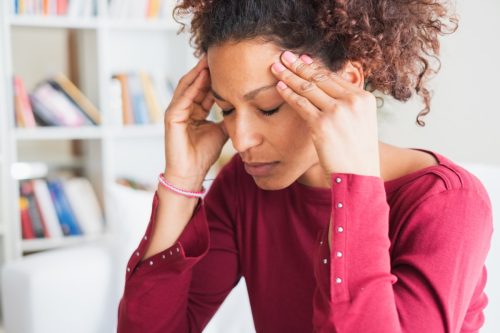Familiarize Yourself With These 13 Surprising Stroke Symptoms
Most people are aware that a stroke is a very serious—and often fatal—medical event. But what you may not know is just how common strokes are—and that people can have them at any age. (Actor Aubrey Plaza One when she was a child. Only 20 years old.) According to the Centers for Disease Control and Prevention (CDC), strokes are common in the U.S. Every 40 secondsEvery three-and-a half minutes, one of these people dies.
“A stroke is a life-threatening condition that happens when part of your brain doesn’t have enough blood flow. This most commonly happens because of a blocked artery or bleeding in your brain,” The Cleveland Clinic explains. “Without a steady supply of blood, the brain cells in that area start to die from a lack of oxygen.”
It makes sense, then, that the sooner you recognize the symptoms of a stroke, the better your chances of surviving—and recovering. “The faster a person having a stroke gets medical care, the more likely the effects of the stroke will be limited or even reversible,” Clinic notes. Keep reading for 13 unexpected stroke symptoms to be on the lookout for.
READ THIS NEXT According to a new study, if you have this happen at night, your stroke risk will skyrocket..
Intense Headache is a stroke symptom that can easily be mistaken for a migraine—especially if you are prone to them. “This can occur as a result of bleeding in the brain,” Cardioologist Sanjiv PatelMD tells you about Best Life. You should immediately seek medical attention if you suffer from headaches and other symptoms associated with stroke. It’s best to seek medical attention if your headache is more severe than usual.
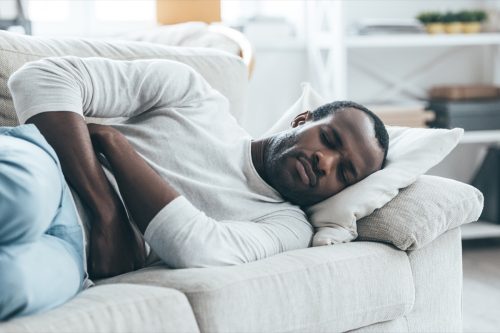
Patel says that sudden, unexplained nausea and vomiting can be another sign of stroke. Both of these symptoms can occur, he explains. “due to a blocked artery or bleeding in the brain.”
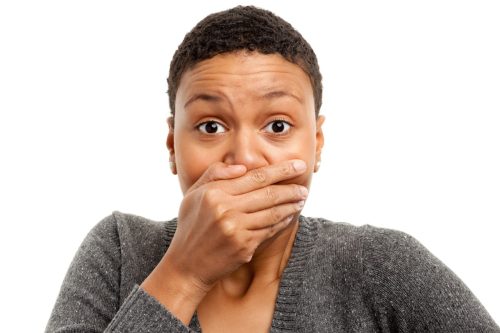
Strangely, strokes can also cause severe hiccups. According to a 2005 paper in the Journal of Neurology, Neurosurgery & Psychiatry Notably, there are other neurological issues. Hiccups can also occur—so even if you don’t think you’re having a stroke, persistent hiccups are worth a trip to the doctor.
READ THIS NEXT Study Says: If you can see this, your stroke risk skyrockets.
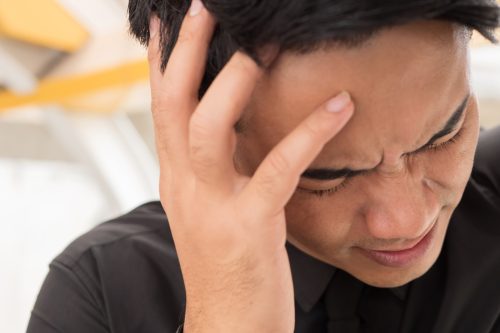
“A stroke in the back of the brain can cause balance difficulty and dizziness,” Jason TarpleyMD stroke neurologist Providence St. John’s Health Center, California, informs Best Life. Seek medical attention immediately if you have trouble walking or feel unsteady.
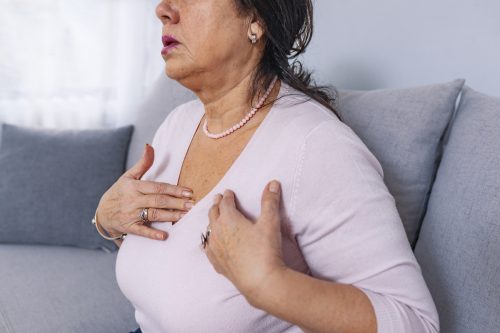
According to The Cleveland Clinic, “A stroke can be described as your brain’s version Of a heart attack.” In fact, chest pain can be a sign that you have suffered a stroke. According to Cedars-Sinai, chest pain—especially when it’s accompanied by heart palpitations—can signal an ischemic stroke, which is the most common type of stroke.

The symptoms of a stroke that mirrors a heart attack include chest pain and arm pain. Cedars Sinai also notes that there is a possibility of experiencing shortness or chest pain. Strokes and heart attacks are equally serious, so either way, this—as well as all of the symptoms on this list—should be addressed immediately.

Many people experience an affliction. Cognitive function declines as they age—but if you’re dealing with sudden confusion, don’t just chalk it up to getting older. The Mayo Clinic explains that this type of loss of executive functioning—Also known as vascular dementia—typically occurs when the brain is deprived of blood flow, as it is during a stroke. However, this symptom does not always present as confusion. It can be a lack of ability to understand or even inability to comprehend what others are saying.
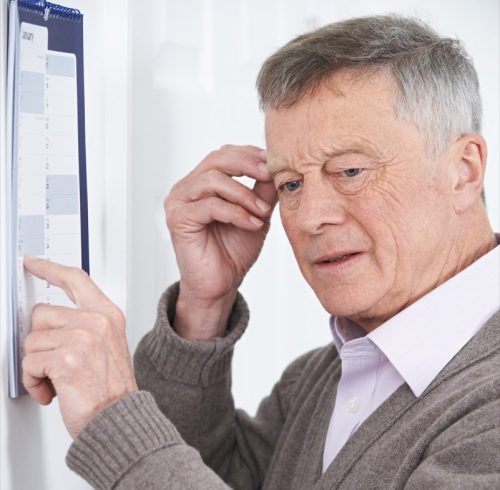
According to the American Stroke Association (ASA), strokes can cause confusion and other serious brain problems, such as memory loss or short-term memory problems, trouble following instructions, memory loss, memory impairment, memory loss, memory difficulties, memory issues, memory drift, memory loss, memory problems, memory loss, memory difficulties, memory problems, memory problems, memory problems, memory troubles, difficulty following instructions, financial transactions, and more. Stroke symptoms.

If you’re experiencing numbness or weakness—specifically only on one side of your body—it’s essential that you get to a doctor as soon as possible. According to the American Stroke Association single-sided numbness or weakness is a sign that you have suffered a stroke. You can even find out where the stroke took place by looking at the symptoms. If your left side becomes weaker, this means that the stroke took place in your right side.
To receive more health news directly to your email, subscribe Subscribe to our daily newsletter.

According to the American Stroke Association, facial paralysis or drooping are also signs of stroke. A stroke can result in facial paralysis or loss of movement.

Slurred speech is one of the most noticeable symptoms of stroke, according to American Stroke Association. This is usually caused by muscle weakness due to a decrease in blood flow to the brain. It may continue even after other stroke symptoms have subsided.

According to The Stroke FoundationAbout a third suffer from vision impairment after a stroke. It can range anywhere from partial blindness to total loss. They also note that your vision may not return fully to normal after a stroke. However, some recovery may occur within the first few months.

Strokes are known to cause behavioral changes. However, the details of these shifts depend on the side of the brain that the stroke occurred. As the American Stroke Association Notes, strokes on the left brain are most common. “slow, cautious behavior,” Strokes on the right side can result in “quick, inquisitive behavior.” These behavior changes can be hard to change, like vision loss and slurred speech.
" Conservative News Daily does not always share or support the views and opinions expressed here; they are just those of the writer."

